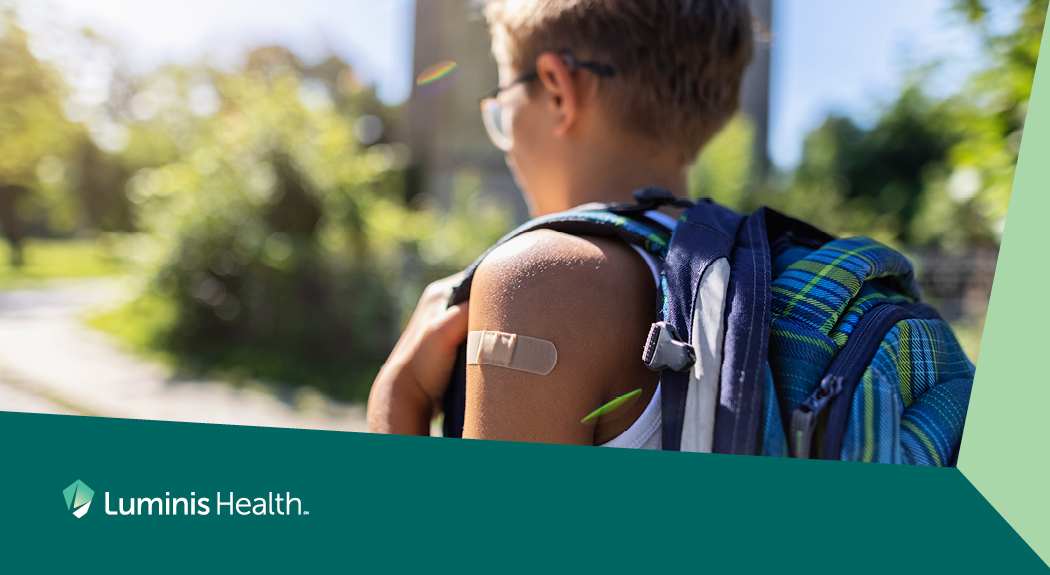As COVID cases in children continue to rise — and the delta variant continues to spread — health experts are cheering on the latest vaccine developments, including the possibility of a lower-dose vaccine that may be ready for kids age five to 11 in a matter of weeks. Aside from getting us one step closer to stopping the unprecedented spread of the virus, there’s no question what it will also mean when it comes to keeping our kiddos in school. But what should you know as a parent?
How COVID affects kids
At the beginning of the pandemic, it seemed children didn’t get COVID as much as adults. However, over time, the number of kids infected has risen sharply. In fact, children now account for about a quarter of the weekly reported cases in the U.S., according to data from the American Academy of Pediatrics (AAP).
Most cases in kids are mild. But researchers are still studying how the virus could affect their long-term health. And with children in schools, sports, extracurricular and social activities, getting them vaccinated could go a long way in helping slow outbreaks of the virus in the community, reduce sick days from illness and days out of school exposure to COVID.
How the vaccine works
Vaccines are already available for children 12 and over. However, clinical trials were needed for those under the age of 12 to 5 years of age to ensure they’ll be safe and effective for younger kids, whose bodies work differently.
A recent announcement from Pfizer explains that their vaccine for younger kids uses a smaller dose than the vaccine for adults and teens (10 micrograms compared to 30 micrograms), given 21 days apart. Their trial showed that kids had a strong immune response on par with those in the 16 to 25 age group after getting their second dose. They also had similar side effects, which were mild.
The Pfizer trial included more than 2,000 children.
Both vaccines must now go through a review process from the Food and Drug Administration (FDA) and Centers for Disease Control and Prevention (CDC) before being given to the public. And health officials have been eager for this to happen, especially with the latest Delta variant statistics.
There’s also good news for parents of children under five who are waiting for a vaccine for their little ones. Researchers say it could be ready for our youngest set of kids later this year.
When your child can get it
We expect final approval for the vaccine for kids age five to 11 in the coming weeks. And officials are hopeful that children could start getting their shots as early as Halloween.
Where to find help if you need it
Vaccines are our best shot at ending the pandemic and getting back to freely enjoying time with our friends and families. Making sure your family gets vaccinated puts us one step closer to reaching that goal. And while that seems easy, these are stressful and uncertain times. It’s normal to have questions, and we always want to make sure you find all the information you need to feel comfortable with your health decisions.
Your child’s pediatrician is a great place to start. You can also visit our FAQs at any time for help with general vaccine information. Let’s put an end to the spread — together.
Lauren Fitzpatrick, MD, is medical director of the Pediatric Emergency Department and Inpatient Unit, Luminis Health Anne Arundel Medical Center
Asha Payne, MD, is medical director of the Children’s National Emergency Department at Luminis Health Doctors Community Medical Center.




